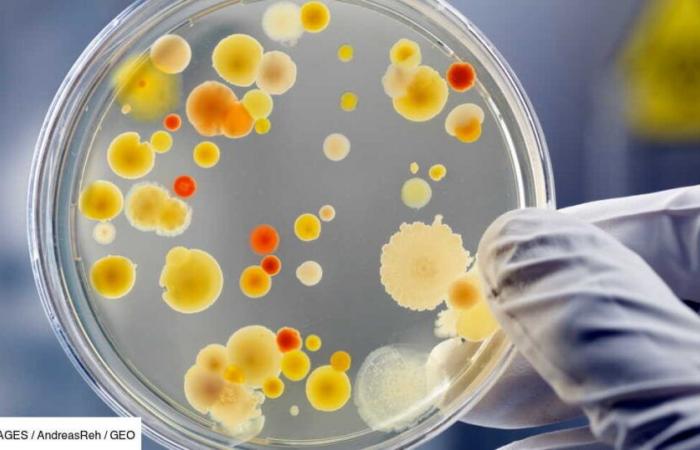
These experts are convinced: caution is required. A group of 38 scientists from nine countries are warning against the creation of “mirror bacteria”, synthetic organisms whose molecular structure is reversed from that of natural life forms. Although this research is still at a preliminary stage, the researchers believe that the risks posed by this advance are “unprecedented” et “neglected”.
A 300-page report, written by specialists in immunology, evolutionary biology and biosecurity, focuses on the feasibility and risks linked to the creation of these “mirror bacteria”. The conclusions of this work were published on December 12 in the journal Science.
If they spread, these mirror bacteria could have disastrous consequences
These specialists inform us that researchers are trying to create life forms entirely composed of so-called “mirror” molecules. An initiative which, according to them, marks a break with known biology. This type of life, made of molecules whose chirality [en chimie, un composé est dit chiral s’il n’est pas superposable à son image dans un miroir plan, Ndlr] is reversed, could have consequences for human health. Ecosystems could also be threatened by such research.
10 great discoveries that have advanced science
To support their reasoning, scientists point out that all known forms of life are based on uniform chirality, like DNA, RNA and proteins. Just as a glove designed for a right hand cannot be worn by the left, molecular interactions depend on this specificity, which is why “mirror bacteria” risk altering the functioning of immune systems.
If they were to spread in ecosystems, these bacteria would risk causing serious infections that are difficult to detect, particularly in plants, warns Jonathan Jones, co-author of this scientific report, whose comments are relayed by CNN: “He’s a genie you don’t want to let out of the bottle. […] Evolutionary mutations would allow these bacteria to spread.”
Work necessary to verify that this route is safe
The authors of this work admit that there is no immediate threat, but they emphasize that the technical obstacles to the creation of these bacteria nonetheless remain considerable. They believe that serious reflection must be undertaken before continuing on this path. If no convincing evidence contradicts these risks, they recommend banning all research aimed at creating such life forms.
They also emphasize that “mirror bacteria” could affect living organisms by disrupting their molecular recognition, essential for immune defense. Concretely, these bacteria could become an invasive species, disrupting numerous ecosystems and endangering various species… including humans.





